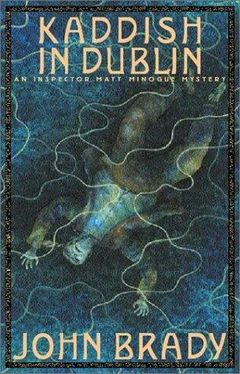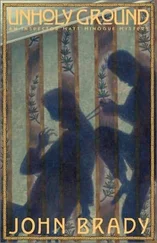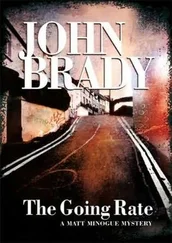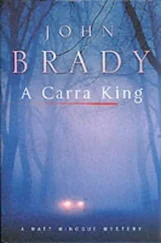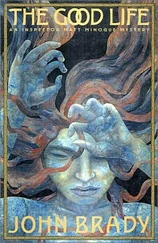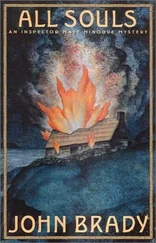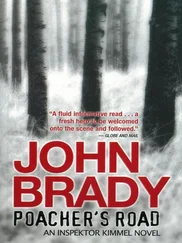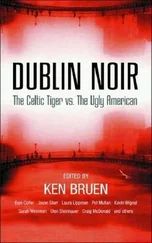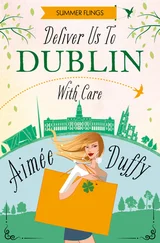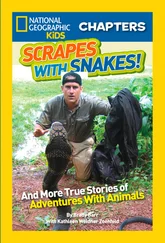John Brady - Kaddish in Dublin
Здесь есть возможность читать онлайн «John Brady - Kaddish in Dublin» весь текст электронной книги совершенно бесплатно (целиком полную версию без сокращений). В некоторых случаях можно слушать аудио, скачать через торрент в формате fb2 и присутствует краткое содержание. Жанр: Полицейский детектив, на английском языке. Описание произведения, (предисловие) а так же отзывы посетителей доступны на портале библиотеки ЛибКат.
- Название:Kaddish in Dublin
- Автор:
- Жанр:
- Год:неизвестен
- ISBN:нет данных
- Рейтинг книги:5 / 5. Голосов: 1
-
Избранное:Добавить в избранное
- Отзывы:
-
Ваша оценка:
- 100
- 1
- 2
- 3
- 4
- 5
Kaddish in Dublin: краткое содержание, описание и аннотация
Предлагаем к чтению аннотацию, описание, краткое содержание или предисловие (зависит от того, что написал сам автор книги «Kaddish in Dublin»). Если вы не нашли необходимую информацию о книге — напишите в комментариях, мы постараемся отыскать её.
Kaddish in Dublin — читать онлайн бесплатно полную книгу (весь текст) целиком
Ниже представлен текст книги, разбитый по страницам. Система сохранения места последней прочитанной страницы, позволяет с удобством читать онлайн бесплатно книгу «Kaddish in Dublin», без необходимости каждый раз заново искать на чём Вы остановились. Поставьте закладку, и сможете в любой момент перейти на страницу, на которой закончили чтение.
Интервал:
Закладка:
“The up-to-the-minute Italian suit that costs three hundred quid, you mean. Sinnott?”
“Yep.”
Fitzgerald was a tall, skinny man with a beard. A few strands of grey stretched out to the fringe which almost touched the rim of his wire spectacle frames. Minogue thought of John Lennon. Fitzgerald shook Minogue’s hand.
“I know you,” he said and turned to Hoey.
“Detective Officer Seamus Hoey, also of the Investigation Section,” said Minogue.
“Ah, what a relief it is,” Fitzgerald said without any evident humour. “At least yous’re not part of An Craobhinn Aoibhinn.”
Minogue rather liked the caustic sarcasm. This nickname for the Special Branch had little to do with the mythical ‘Sweet Branch’, the fount of turn-of-the-century irredentist poetry with the mists of the Celtic Revival swirling about it.
“Were you expecting a bust of some type, Mr. Fitzgerald?” Minogue probed.
“We police ourselves here, lads,” Fitzgerald replied with more cynicism than coyness this time.
Minogue did not take up the bait. He would be no match for Fitzgerald as he, Fitz, presumably knew every in and out of the Broadcasting Act. A section of this act forbade RTE from airing interviews with members of proscribed organizations. Successive Irish governments had consistently subscribed to the notion that what didn’t appear on television could not exist in the minds of television viewers.
On this issue, executives in RTE were uncertain how to react. They were partly flattered by the implication that television was such a powerful medium of communication; they also took it for granted that, unlike the US, their Irish fellow-citizens knew there was life outside television. Rather than have a Minister slap an order on the service over any particular item, therefore, RTE had undertaken to keep its censorship in-house.
Fitzgerald led the two policemen through the building and toward the current affairs workroom. His department consisted of a huge room held in by walls of glass. Minogue decided not to make a comment about glass houses. The room was sectioned off by cloth-covered room dividers and desks stood in cosy spaces created by the high squares of orange and blue. It was all very modern, very dynamic, Minogue believed.
Less than half the desks they passed were occupied. A cluster of people sat at and around one desk, smoking and talking in low tones. They fell silent and looked to the policemen as they passed. Typewriters clacked at a distance. A radio was playing reggae music. Posters extolled visits to Madrid and an exhibition of Escher drawings which had come and gone at a Dublin gallery six years previously.
Fitzgerald stopped by one desk.
“That’s Paul’s. I put all his stuff in the drawers and that vertical cabinet there and I locked them. That was yesterday when I heard the news.”
He looked blankly to Minogue who was aware of the group still staring at them.
“And you have the keys?”
“I have. I swept his stuff off the desk and stuffed it all into his drawers and cabinet. The newsroom heard it first and a fella came over to us. We were terribly shocked here, just couldn’t believe it. Even with my expert knowledge of police procedure from watching the telly, it took me ten minutes to get my head together and fix up his desk. Hardly anyone here locks their desks. I turned the keys and put ‘em in me pocket.”
“Good man. I’ll be wanting to look at this stuff later, Mr. Fitzgerald,” said Minogue.
“And I’ll be wanting a list and a receipt detailing anything you take,” Fitzgerald replied.
Minogue looked back to the silent group and met their gaze for several seconds.
“I have me own private cell over here,” said Fitzgerald.
Seated in Fitzgerald’s office, Minogue took in the furnishings while Fitzgerald phoned for Brendan Downey. When Downey appeared, Minogue recognized him for one of the group huddled about the desk outside.
“What did Paul Fine do here, as regards his job?” Minogue asked then.
“He was a reporter/researcher: that’s his job description. He’d be one of eight people who works for the producer, i.e. me. He was a journalist and a reporter. Basically he would have called himself a journalist. He had been on the afternoon programme-”
“Day by Day?”
“Good for you, Inspector. We squeeze in segments of between five and ten minutes’ live time. It’s a magazine format that takes us to news-time on this channel.”
“To the Angelus, you mean,” said Minogue.
It was hard to tell what went on behind the beard, Minogue realized, but he believed that he saw Fitzgerald’s amusement push his glasses up slightly. Fitzgerald had made no secret of his opinions on institutions like the Catholic church. Minogue struggled to recall when it was that several bishops had jointly written an open letter to the newspapers, complaining about a sinister anti-clerical undertone to many current affairs programmes on RTE radio. To the credit of the Director General, he had asked them for proof. In a religion which regards the notion of ‘proof’ as an upstart provincial relative to horned heresy-stigmata, moving and bleeding statues excepted-this was an impertinence. Fitzgerald, a tenacious weed, still held his job.
“True for you. Sort of sets the tone for the news, wouldn’t you say?” said Fitzgerald.
Minogue almost smiled. Fitzgerald was no more than forty. He’d have allies, a common passion, support now. Minogue could remember the dull bells of the Angelus broadcast forty years ago in that pious, somnolent Ireland, summoning people to prayer at midday and at six. Fitzgerald, and his generation, could jibe now: he was educated and tough. It had taken Minogue thirty and more years to know that within the vague narrative which made up his life was retained the precise anger of his own rebellion. There had been few Mickey Fitzgeralds then. Minogue was now almost content that his anger had been blunted into detachment; Fitzgerald had made no such concession, he was sure.
Downey smiled tightly as though anti-clericalism was but an exchange of pleasantries. Hoey looked lost. Minogue stretched. Fitzgerald’s teeth showed for an instant. He took off the Leon Trotsky intellectual glasses and rubbed his eyes.
“Bren here did some stuff with Paul,” he said.
“Before we go into whatever stuff you or he was working on, can you tell me if there were any peculiarities about Paul Fine recently?” Minogue began. “I mean if he was under stress or under some threat? Losing his job, a dangerous assignment, something of that nature? Did he behave in an unusual manner recently, make any odd comments?”
Fitzgerald shook his head.
“Anybody come looking for him here, asking after him here?”
Fitzgerald looked enquiringly at Downey who shrugged.
“Appear worried about anything? His personal life?” Minogue tried again.
“No,” said Downey.
Downey was well able to talk. Minogue interrupted him several times. The first time was when Downey mentioned Libya.
“No, nothing to do with the, er…” Downey looked to his boss to share the quip. “ ‘Proscribed organizations’ and all that. No, it was off-the-wall, we were talking over a pint one night, you know, talking up possible projects for the programme. We knew there’s a fair number of Arab students here on student visas. We were just wondering if there was any story in that, you know-if any of the Arabs had connections with members of the, er, you know.”
Minogue looked to Fitzgerald rather than Downey. “Lookit, lads, can we stop this pussyfooting around with the terminology?”Proscribed organizations“ and the rest of it? Call them the IRA or the Provos or whatever you like. My colleague here is not a tape-recorder or a lie-detector either, in case you’re wondering. He’s only jotting down notes. If I want a statement out of ye, I’ll ask ye. So can we talk like we’re citizens of the same planet?”
Читать дальшеИнтервал:
Закладка:
Похожие книги на «Kaddish in Dublin»
Представляем Вашему вниманию похожие книги на «Kaddish in Dublin» списком для выбора. Мы отобрали схожую по названию и смыслу литературу в надежде предоставить читателям больше вариантов отыскать новые, интересные, ещё непрочитанные произведения.
Обсуждение, отзывы о книге «Kaddish in Dublin» и просто собственные мнения читателей. Оставьте ваши комментарии, напишите, что Вы думаете о произведении, его смысле или главных героях. Укажите что конкретно понравилось, а что нет, и почему Вы так считаете.
